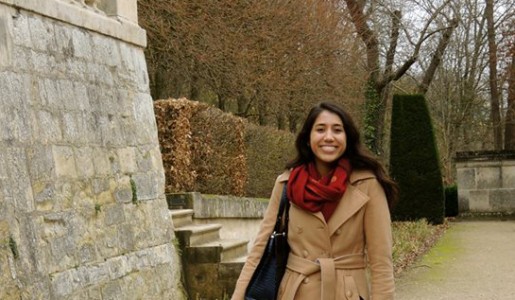Student Spotlight: Sophia Qadir and the Vanishing Culture
 They are called the Français d’Algérie; a people of European descent, citizens of what was once French Algeria. In 1962, when the Algerian War ended, nearly a million of the Français d’Algérie repatriated and largely settled in southern France – leaving their whole lives behind.
They are called the Français d’Algérie; a people of European descent, citizens of what was once French Algeria. In 1962, when the Algerian War ended, nearly a million of the Français d’Algérie repatriated and largely settled in southern France – leaving their whole lives behind.
Unwelcome in the nation they had considered home, as well as shunned by many in France, the Français d’Algérie have never felt their story was fully understood. Today, the children who were young when the Algerian War ended are approaching old age. In a few decades, the legacy of the Français d’Algérie could vanish – consigned to the dusty back rooms of French colonial history.
One Pardee School student is determined to keep that from happening. Sophia Qadir, an international relations and linguistics major at the Pardee School, traveled to two Français d’Algérie archival centers in the South of France, sowing the seeds of a partnership with The Pardee School of Global Studies.
“For those dedicated to preserving the heritage of the Français d’Algérie, the critical thing is to create a repository of memory that will last after the actual citizens are no more,” Qadir said. “I am working with the Pardee School undergrad office on a collaboration with the CDHA, an archival center in Aix-en-Provence, that will trade primary source material as well as provide opportunities for internships and research.”
Qadir’s journey started as she was preparing her capstone project for Kilachand Honors College. She wished to find a way to combine her specializations on the Muslim world with her extensive studies of the French language, and her professors at Pardee helped her focus her studies on the French Algerian community.
“After working with my professors, we narrowed my focus down to two archival centers in the South of France, the CDHA in Aix-en-Provence and another center and museum located in the city of Perpignan,” Qadir said. “I spent two weeks researching at these centers over the semester break.”
Though the mandate of the government-sanctioned centers is primarily the collection of primary source material, Qadir said that both locations had come to function as community hubs for the remaining Français d’Algérie in the region – something she would never have realized had she not visited in person.
“Many in the Français d’Algérie I spoke with talked about the ‘lie of the state,’ and still feel the government failed to recognize their suffering and their sacrifice. They arrived in France, often with only a few suitcases, and were shunned by many out of anticolonialist sentiment,” Qadir said. “But the stories they told me of the Algeria they remembered were different – they were stories of playing soccer in the street with Muslims, of sharing treats with their neighbors at Easter and Ramadan.”
One of those treats were la mouna cakes, a north African delicacy Qadir enjoyed with her new friends.
“They welcomed me in,” Qadir said. “It was special to be there and feel welcomed as a member of their community, which I think was possible because I was able to interact with them in French.”
After her anticipated 2015 graduation, Qadir said she is planning to attend grad school in Paris.
“”The question we need to answer is whether these centers of documentation have a dual function as sites of heritage,” Qadir said. “I want to make it possible for future generations of researchers to continue their studies of this people.”